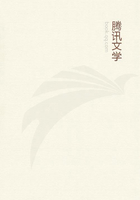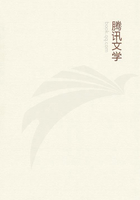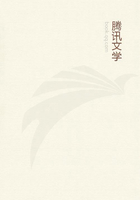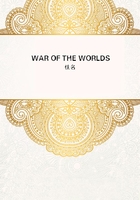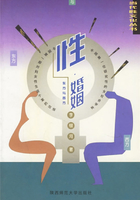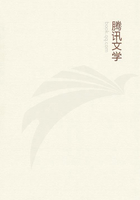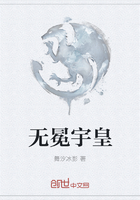The relation of thought and extension in the human consciousness is dealt with by Spinoza as follows: “What has a place in the object” (or rather in the objective) “of the idea which constitutes the human mind must be perceived by the human mind; or there must necessarily be in the mind an idea of this object. The object of the idea which constitutes the human mind is body, or a certain mode of extension. If, then, the object of the idea which constitutes the human mind, is the body, there can happen nothing in the body which is not perceived by the mind. Otherwise the ideas of the affections of the body would not be in God, in so far as He constitutes our mind, but the idea of another thing: that is to say, the ideas of the affections of our body would not be likewise in our mind.” What is perplexing to understand in Spinoza's system is, on the one hand, the absolute identity of thought and Being, and, on the other hand, their absolute indifference to one another, because each of them is a manifestation of the whole essence of God. The unity of the body and consciousness is, according to Spinoza, this, that the individual is a mode of the absolute substance, which, as consciousness, is the representation of the manner in which the body is affected by external things; all that is in consciousness is also in extension, and conversely. “Mind knows itself only in so far as it perceives the ideas of the affections of body,” it has only the idea of the affections of its body; this idea is synthetic combination, as we shall immediately see. “The ideas, whether of the attributes of God or of individual things, do not recognize as their efficient cause their objects themselves, or the things perceived, but God Himself, in so far as He is that which thinks.”(9) Buhle (Geschichte der neuern Philos. Vol. III. Section II. p. 524) sums up these propositions of Spinoza thus: “Thought is inseparably bound up with extension; therefore all that takes place in extension must also take place in consciousness.” Spinoza, however, also accepts both in their separation from one another. The idea of body, he writes (Epistol. LXVI. p. 673), includes only these two in itself, and does not express any other attributes. The body which it represents is regarded under the attribute of extension; but the idea itself is a mode of thought.
Here we see a dividing asunder; mere identity, the undistinguishable nature of all things in the Absolute, is insufficient even for Spinoza.
The individuum, individuality itself, is thus defined by Spinoza (Ethic. P. 11. Prop. XIII. Defin. p.
92): “When several bodies of the same or of different magnitudes are so pressed together that they rest on one another, or when, moving with like or different degrees of rapidity, they communicate their movement to one another in a certain measure, we say that such bodies are united to one another, and that all together they form one body or individuum, which by this union distinguishes itself from all the other bodies." Here we are at the extreme limit of Spinoza's system, and it is here that his weak point appears. Individuation, the one, is a mere synthesis; it is quite a different thing from the Ichts or self-hood of Boehme (supra, pp. 205-207), since Spinoza has only universality, thought, and not self-consciousness. If, before considering this in reference to the whole, we take it from the other side, namely from the understanding, the distinction really falls under that head it is not deduced, it is found. Thus, as we have already seen (p. 270) “the understanding in act (intellectus actu), as also will, desire, love, must be referred to natura naturata, not to natura naturans. For by the understanding, as recognized for itself, we do not mean absolute thought, but only a certain mode of thought - a mode which is distinct from other modes like desire, love, etc., and on that account must be conceived by means of absolute thought, i.e., by means of an attribute of God which expresses an eternal and infinite essentiality of thought; without which the understanding, as also the rest of the modes of thought, could neither be nor be conceived to be.”
(Spinoza, Ethices, P. 1. Propos. XXXI. pp. 62, 63). Spinoza is unacquainted with an infinity of form, which would be something quite different from that of rigid, unyielding substance. What is requisite is to recognize God as the essence of essences, as universal substance, identity, and yet to preserve distinctions.
Spinoza goes on to say: “What constitutes the real (actuale) existence of the human mind is nothing else than the idea of a particular” (individual) “thing, that actually exists,” not of an infinite thing.
“The essence of man involves no necessary existence, i.e., according to the order of nature a man may just as well be as not be.” For the human consciousness, as it does not belong to essence as an attribute, is a mode - a mode of the attribute of thought. But neither is the body, according to Spinoza, the cause of consciousness, nor is consciousness the cause of the body, but the finite cause is here only the relation of like to like; body is determined by body, conception by conception. “The body can neither determine the mind to thought, nor can the mind determine the body to motion, or rest, or anything else. For all modes of thought have God as Cause, in so far as He is a thinking thing, and not in so far as He is revealed by means of another attribute. What therefore determines the mind to thought, is a mode of thought and not of extension; similarly motion and rest of the body must be derived from another body.”(10) I might quote many other such particular propositions from Spinoza, but they are very formal, and a continual repetition of one and the same thing.

